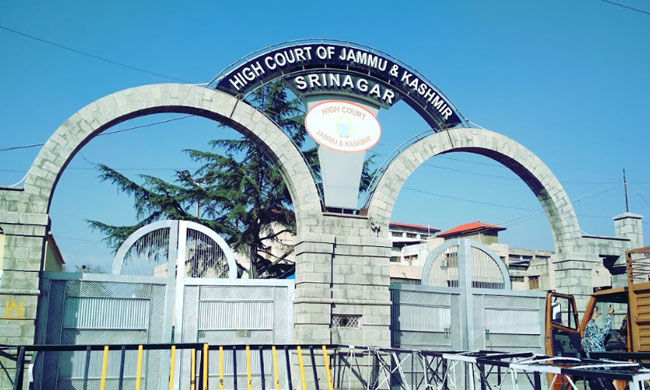High Court acquits 3 Nepali men in 2011 murder case
Post by Syed Rukaya on Tuesday, March 14, 2023

Srinagar, March 13: The High Court of Jammu & Kashmir and Ladakh commuted a life-term to 10 years awarded to three persons of Nepal for the 2011 murder of a tenant who was hit on the head with bread roller, kicks, fists and blows resulting in his death.
A division bench comprising Justices Rajnesh Oswal and Mohan Lal acquitted the accused persons Kaiser Bahadur, Gopal Bahadur and Deep Bahadur residents of Nepal after observing that they have already gone 10 years of imprisonment.
The accused persons had challenged a judgment of conviction passed on May 20, 2014 by the Court of Principal Sessions Judge Kargil whereby they have been held guilty as such convicted and sentenced to undergo imprisonment for life and fine of Rs. 5,000 for the murder of Farbo Tsering.
The incident took place in June 2011 when the deceased was seen lying dead in a face down position by the landlord where the deceased was residing in his house as a tenant.
The bench observed that the trial court has committed an error in not appreciating the law in its right perspective for which we are constrained to modify the conviction to one U/S 304 Part-II of RPC instead of one U/S 302 RPC. In the result, appellants are convicted U/S 304 Part-II of RPC and sentenced to undergo rigorous imprisonment for ten (10) years and to pay the fine amount already ordered by the trial court”
The court directed that the period of imprisonment already undergone shall be set off.
"We have been informed that appellants/convict are lying in incarceration in Central Jail Srinagar for the last 11/12 years, therefore, they shall be released forthwith after depositing the fine amount, if not required/wanted in any other case," the court said.
The court said that so far as the culpability of the convicts is concerned, the same is maintained.
"Appellants had no animosity with the deceased, rather the incident had the genesis of sudden quarrel/inflicting of blows by the appellants with weapons of offence resulting in death of the deceased," the bench noted.
“The material in abundance, in our consideration, proves that the offences committed by appellants/convict is culpable homicide not amounting to murder as defined under exception 4 of Section 300 RPC and for that the appellants are to be convicted U/S 304 part-II RPC instead of Section 302 RPC," the bench said.
It noted that the criminal act committed by the appellants has occurred on the spur of the moment in an uncontrollable bit of anger and these acts do not commend to calculate that the appellants have the intention of committing the murder of deceased Farbo Tsering.
“We are of the considered and firm opinion that the prosecution has utterly failed to establish and prove that there was common intention and prior meeting of minds between the appellants-convict to commit the murder of the deceased," the court noted.